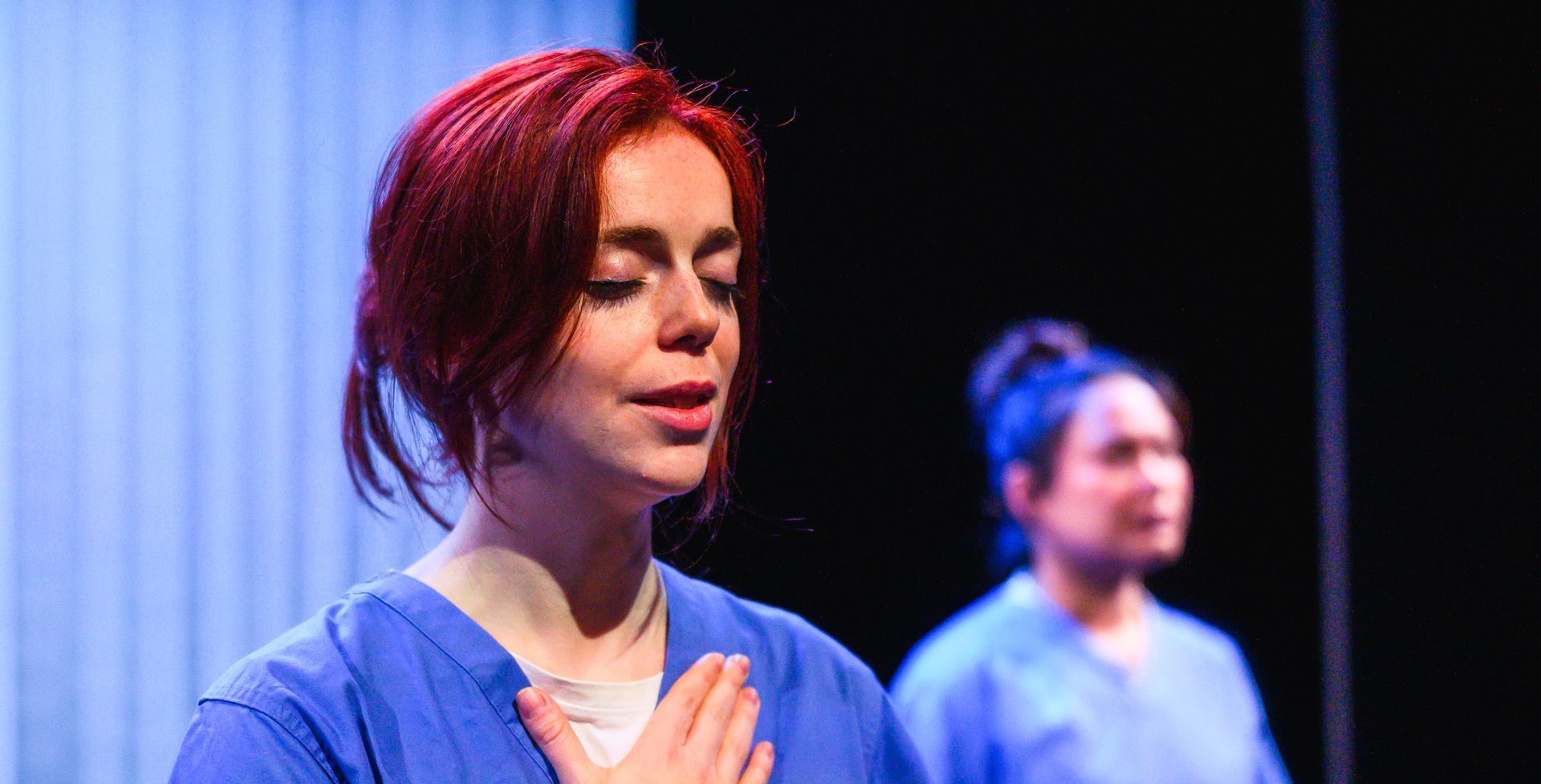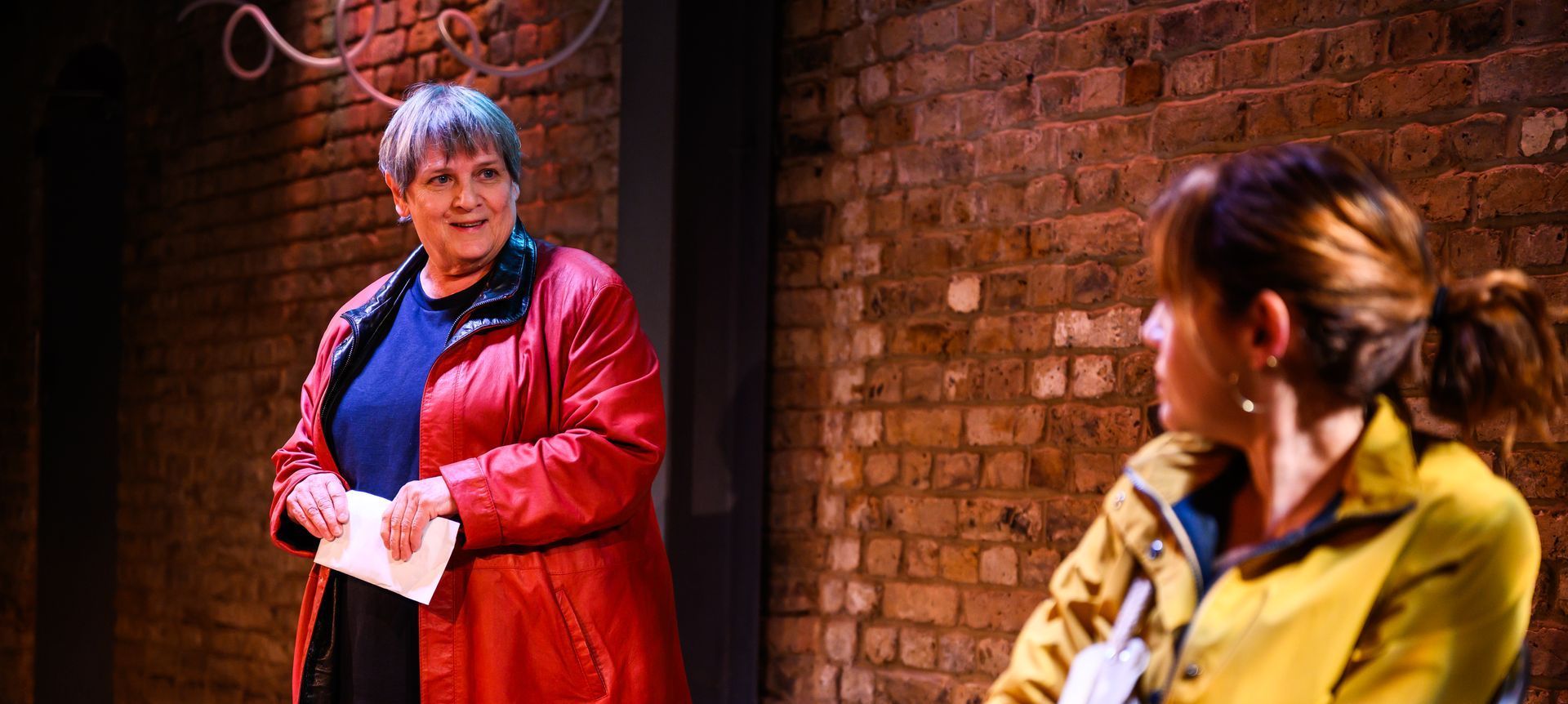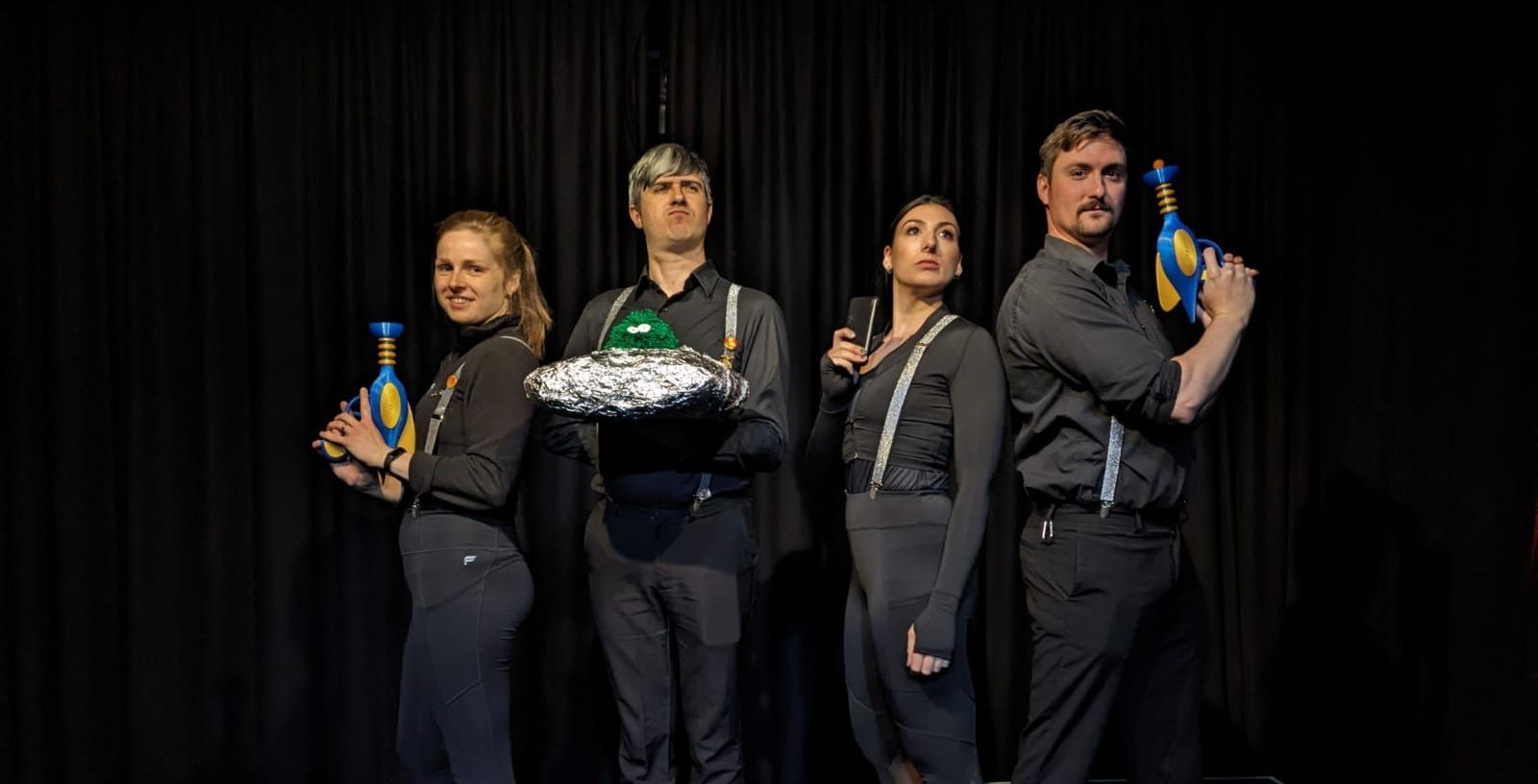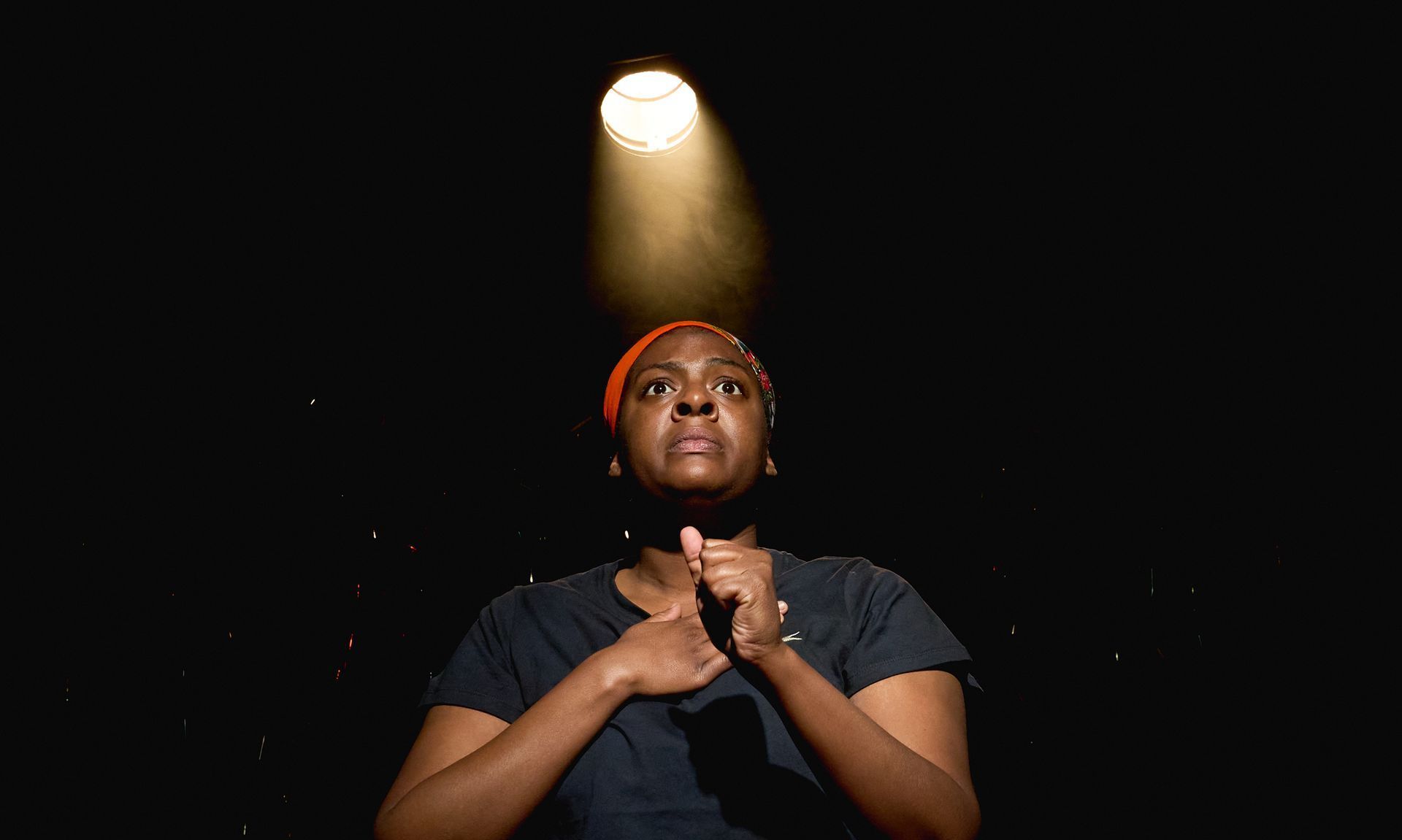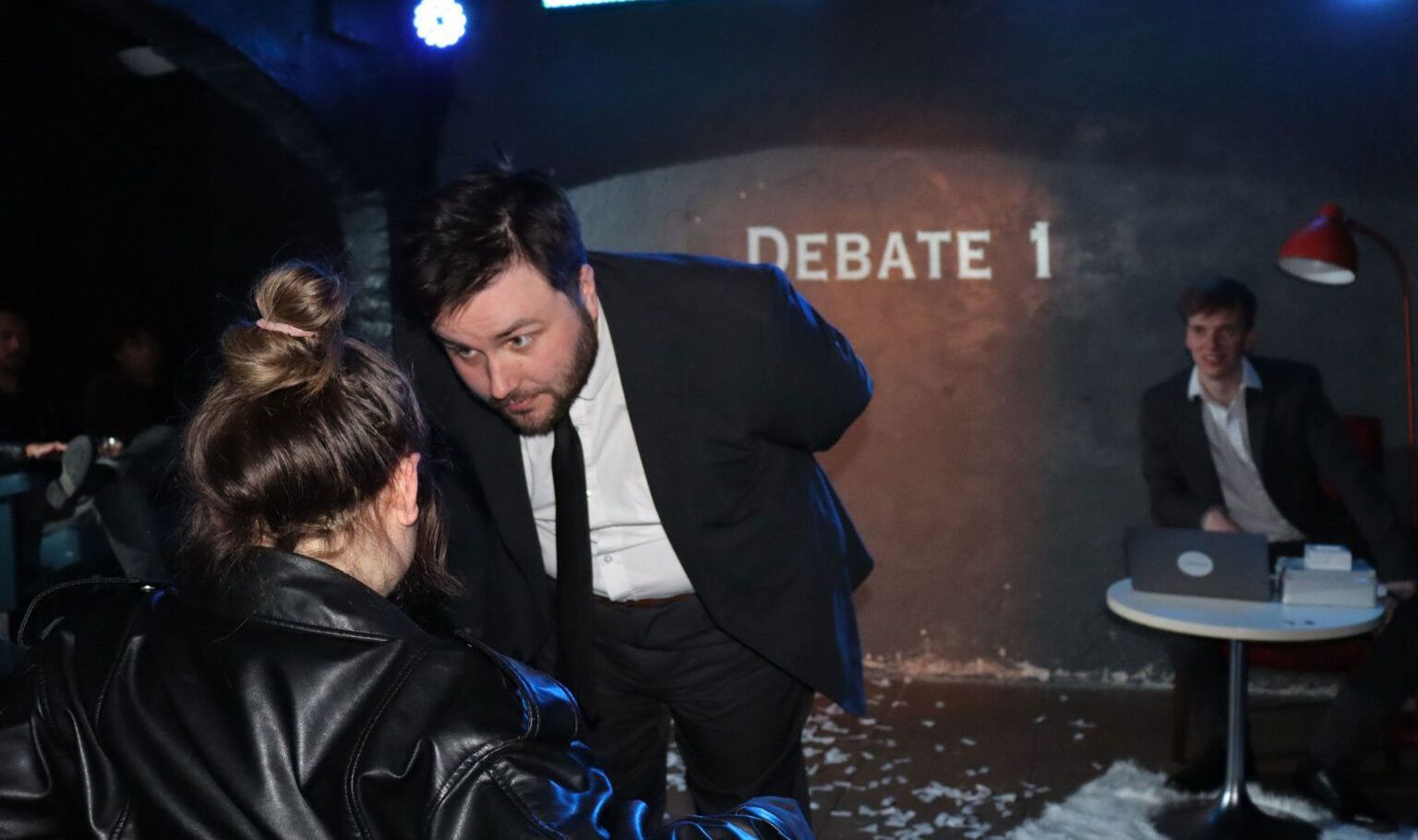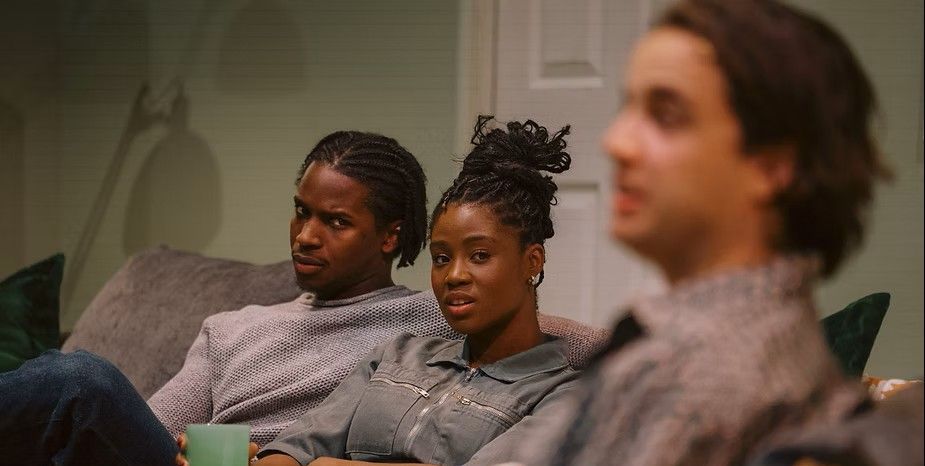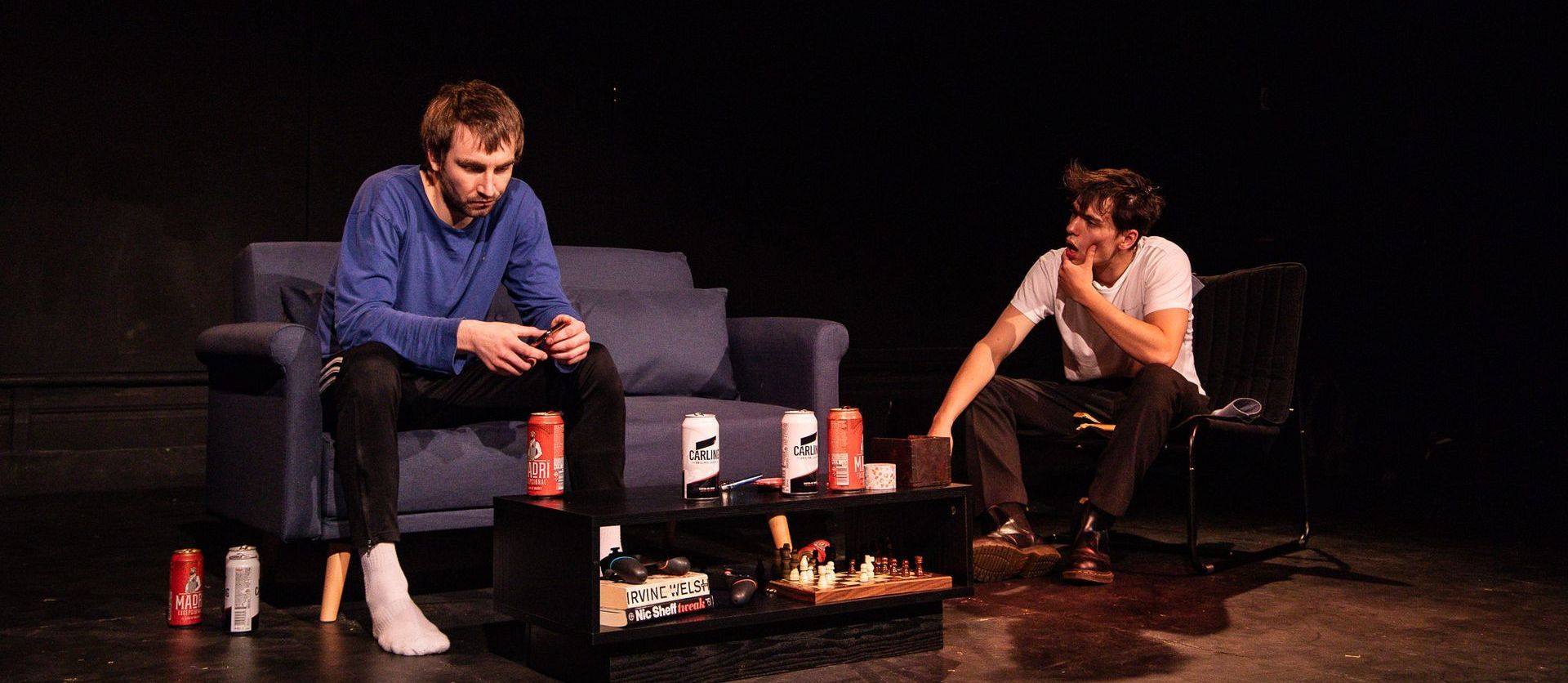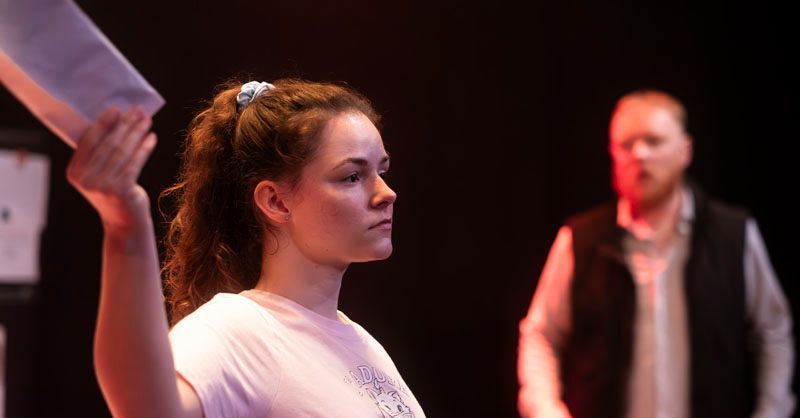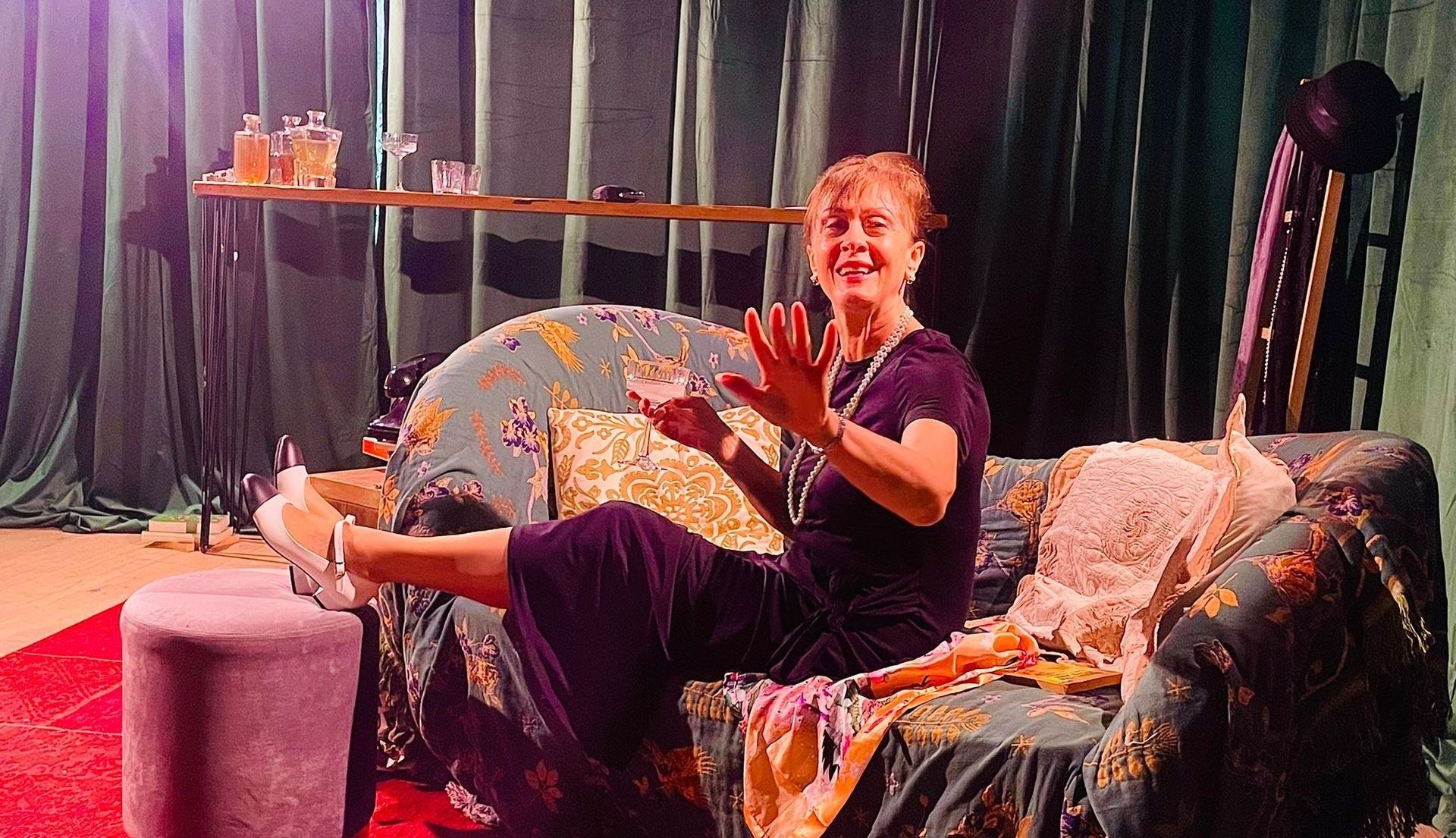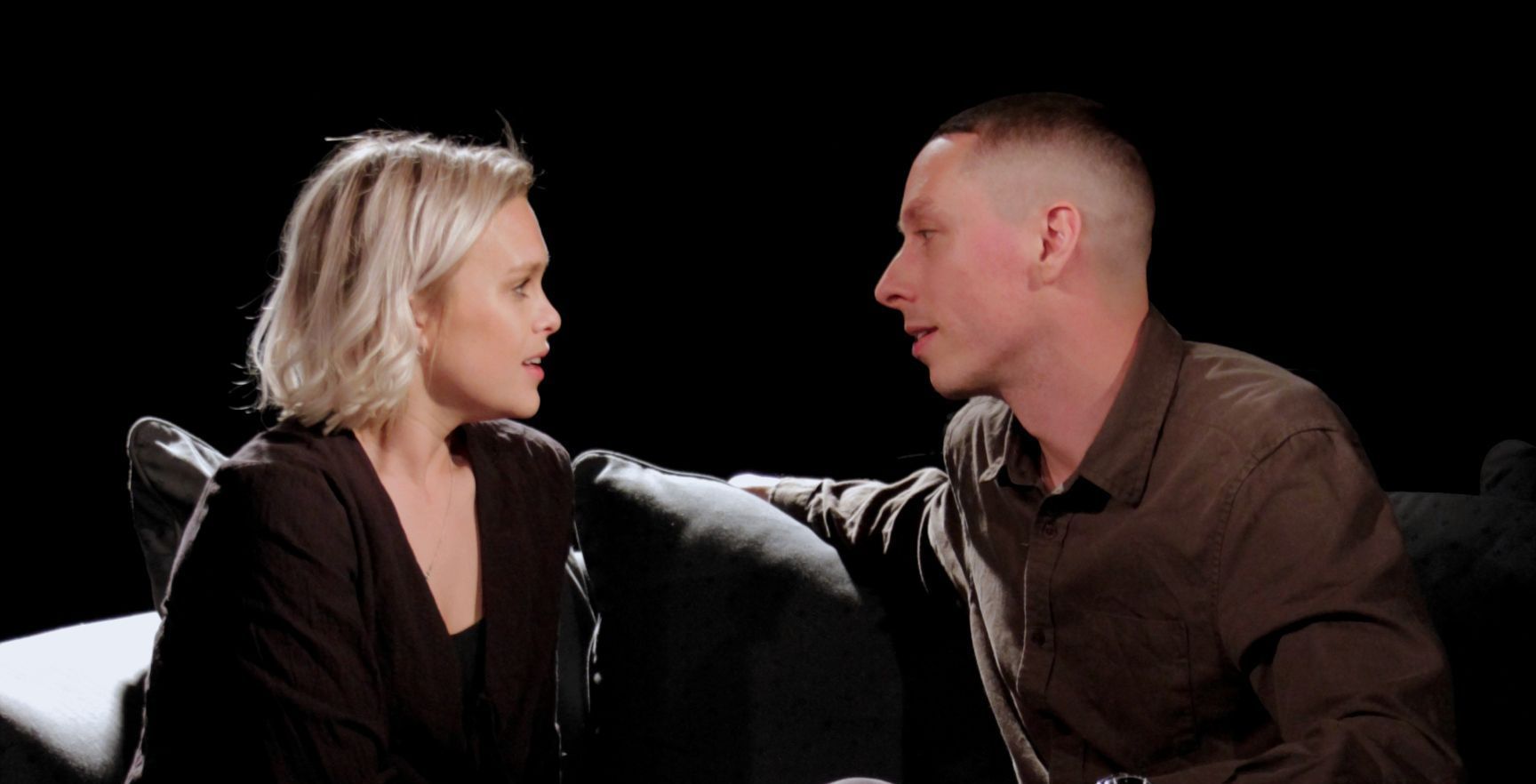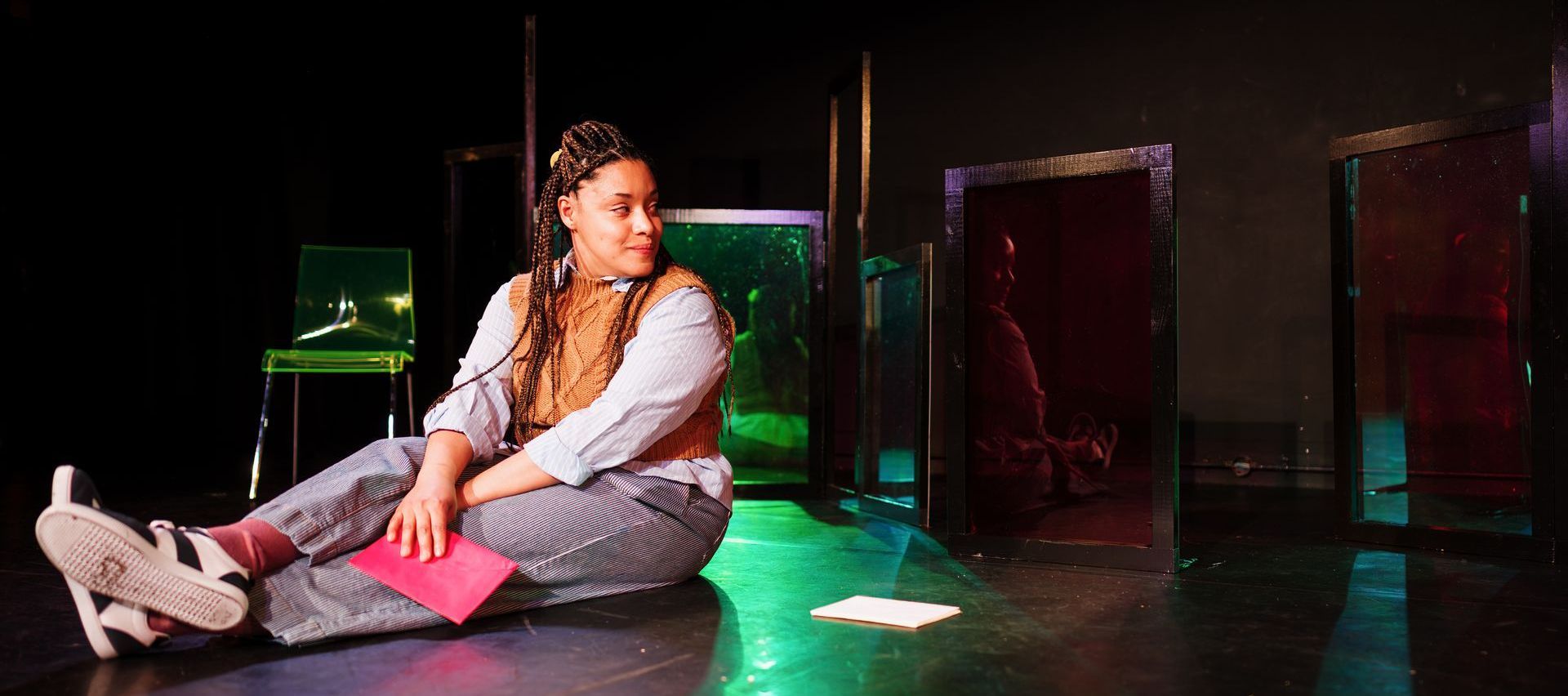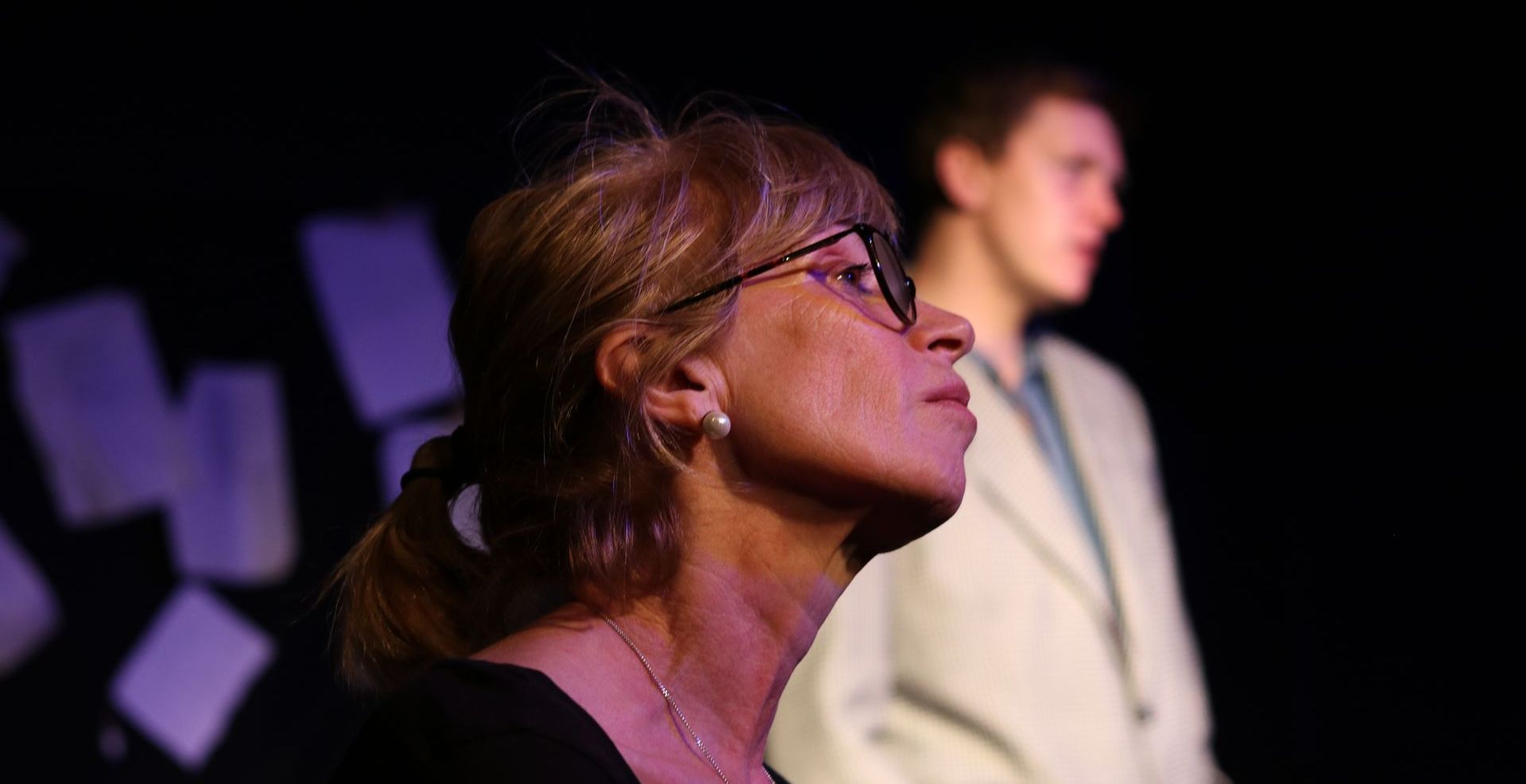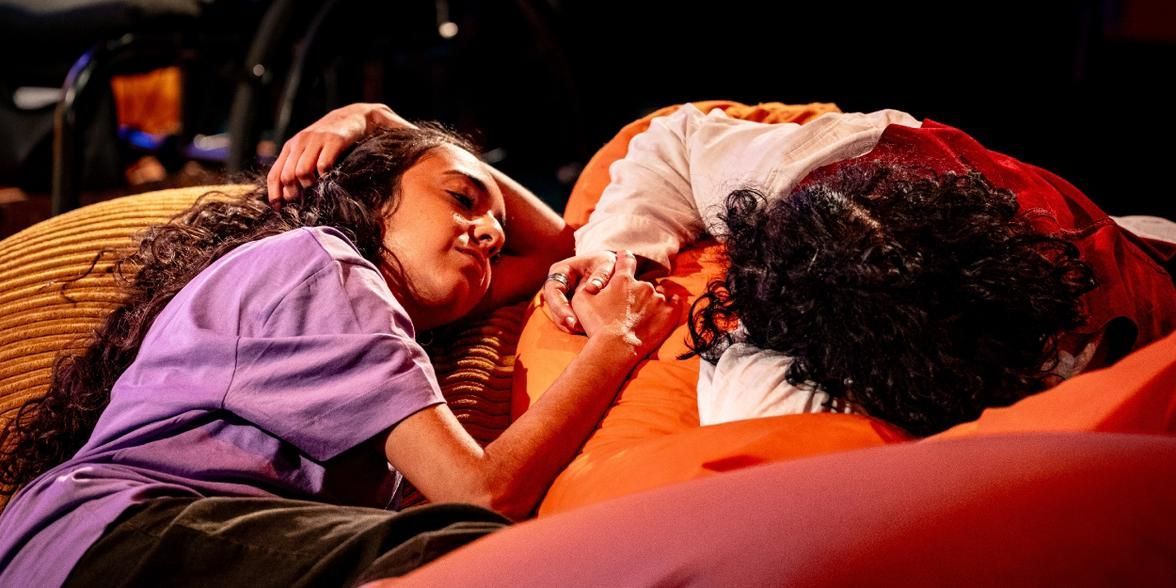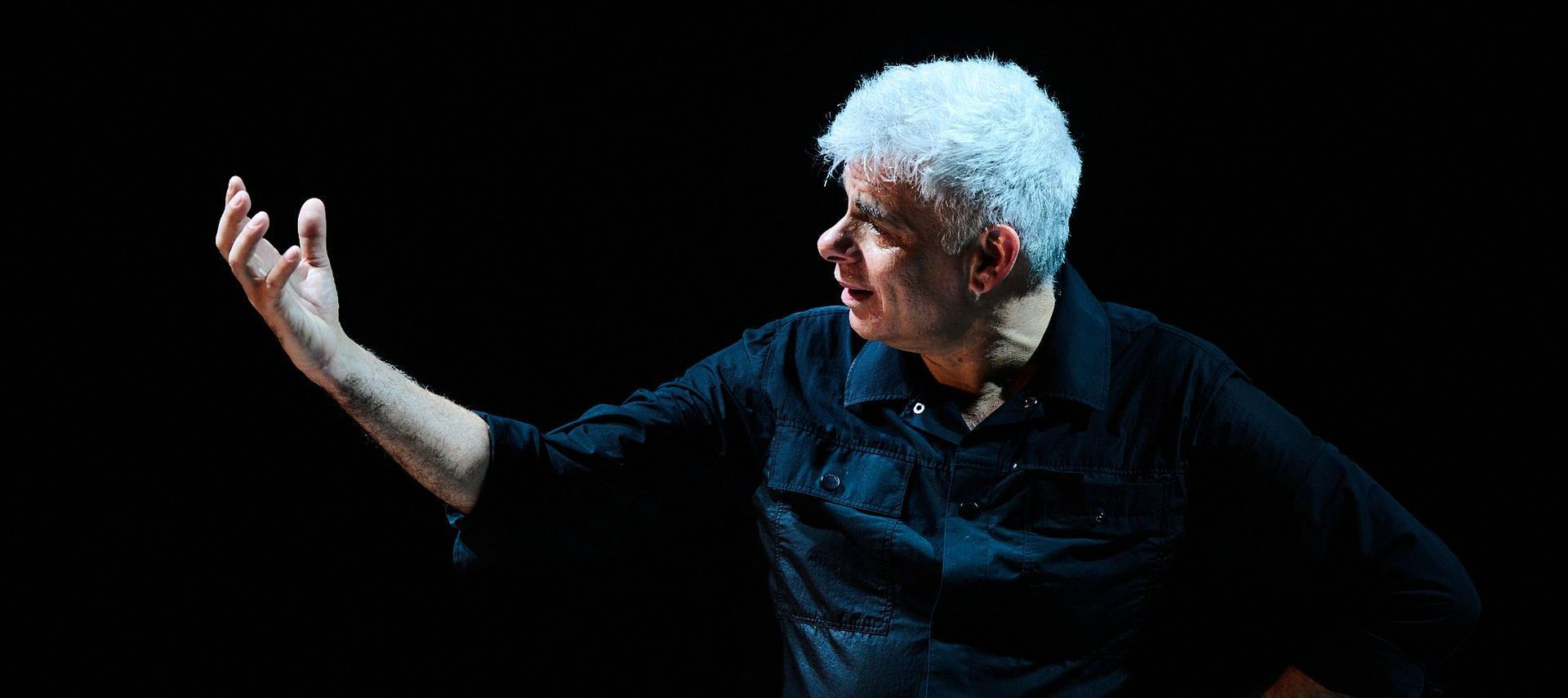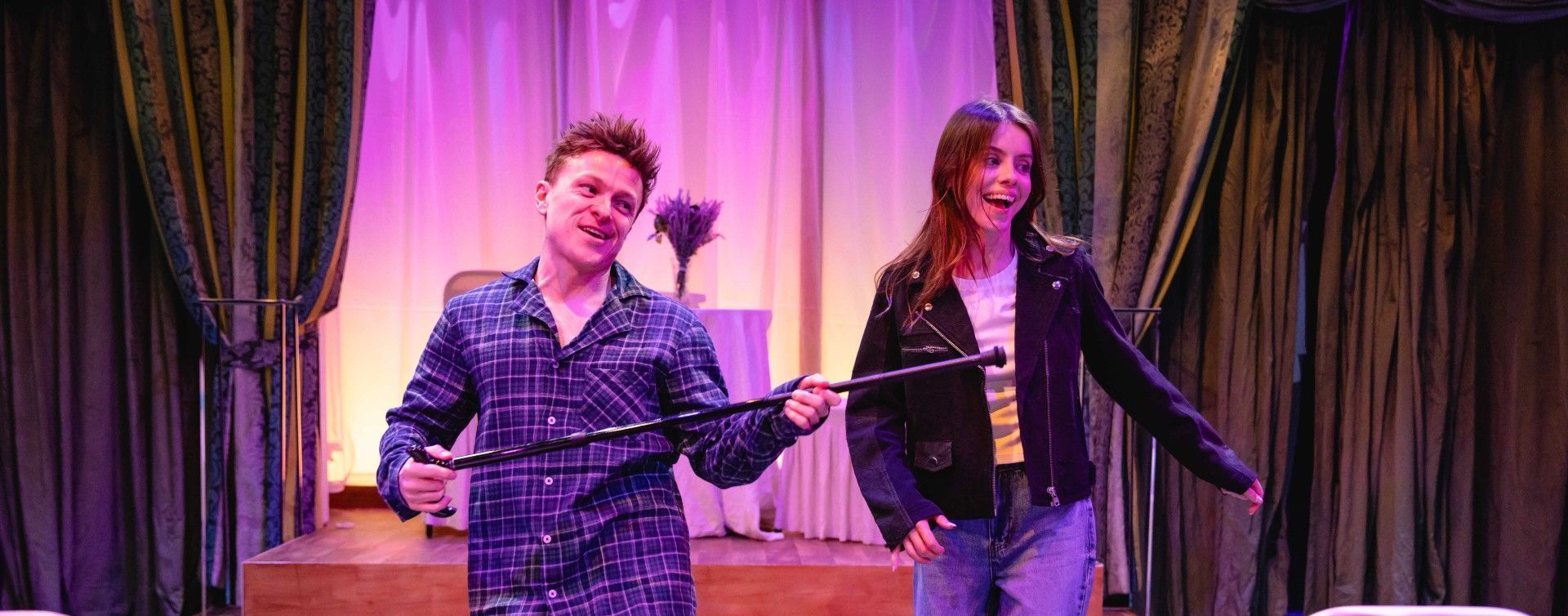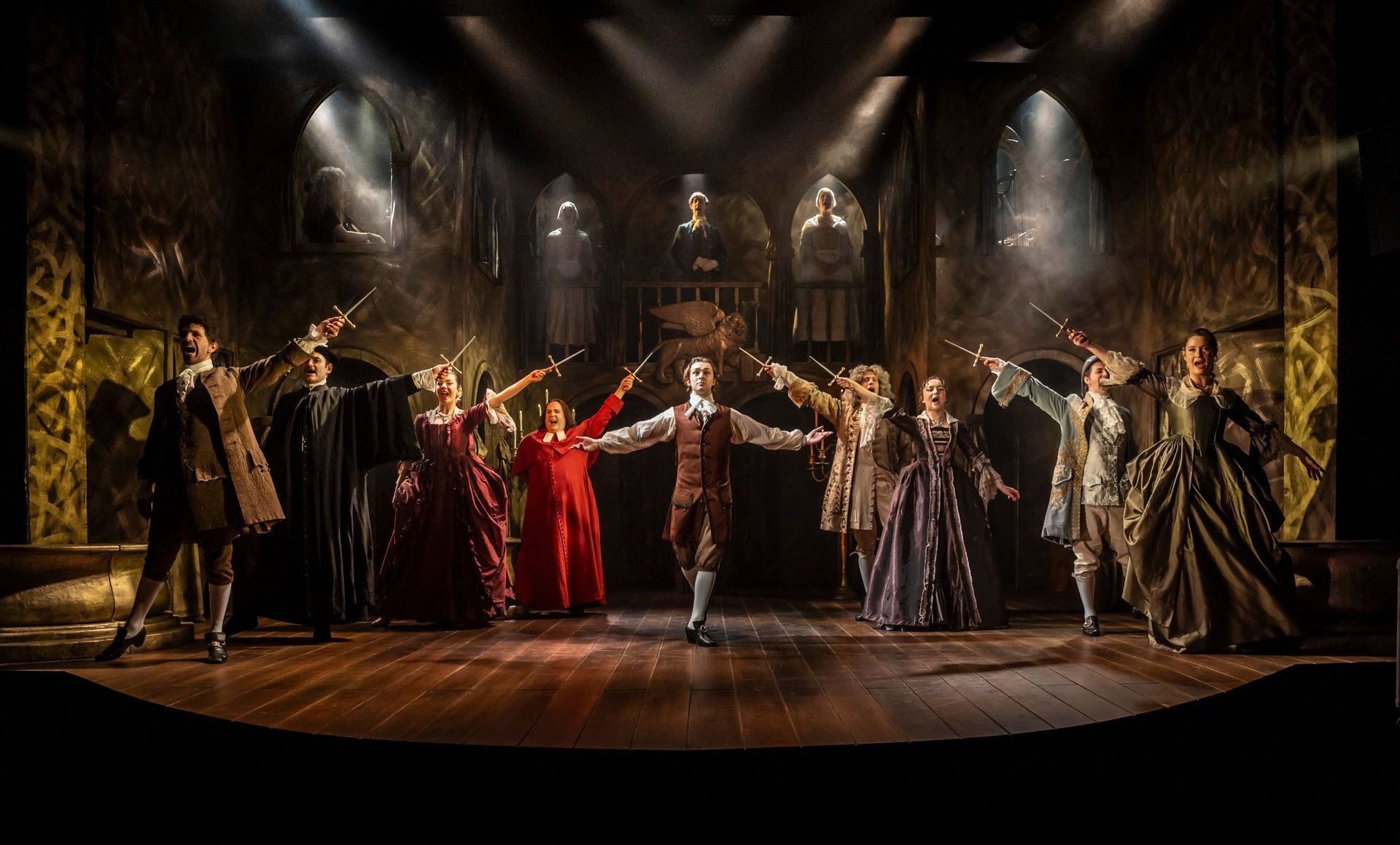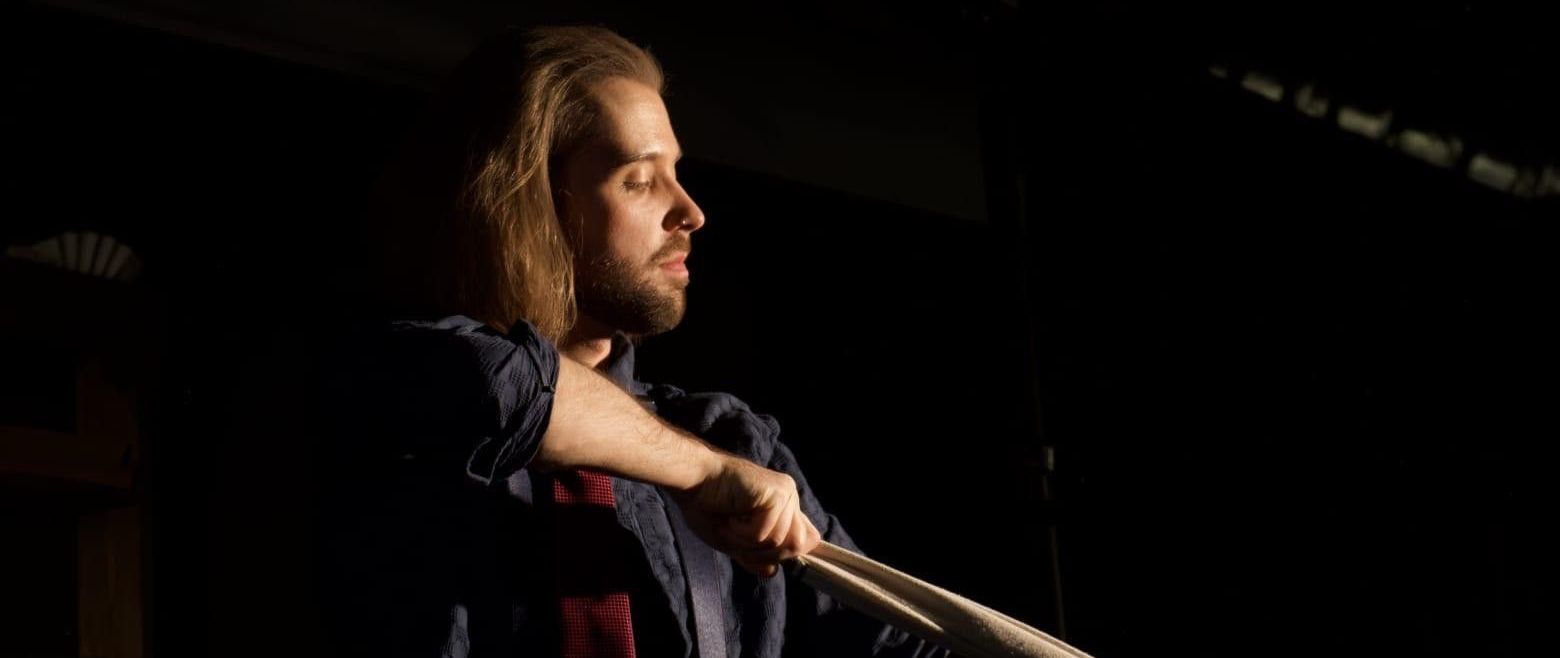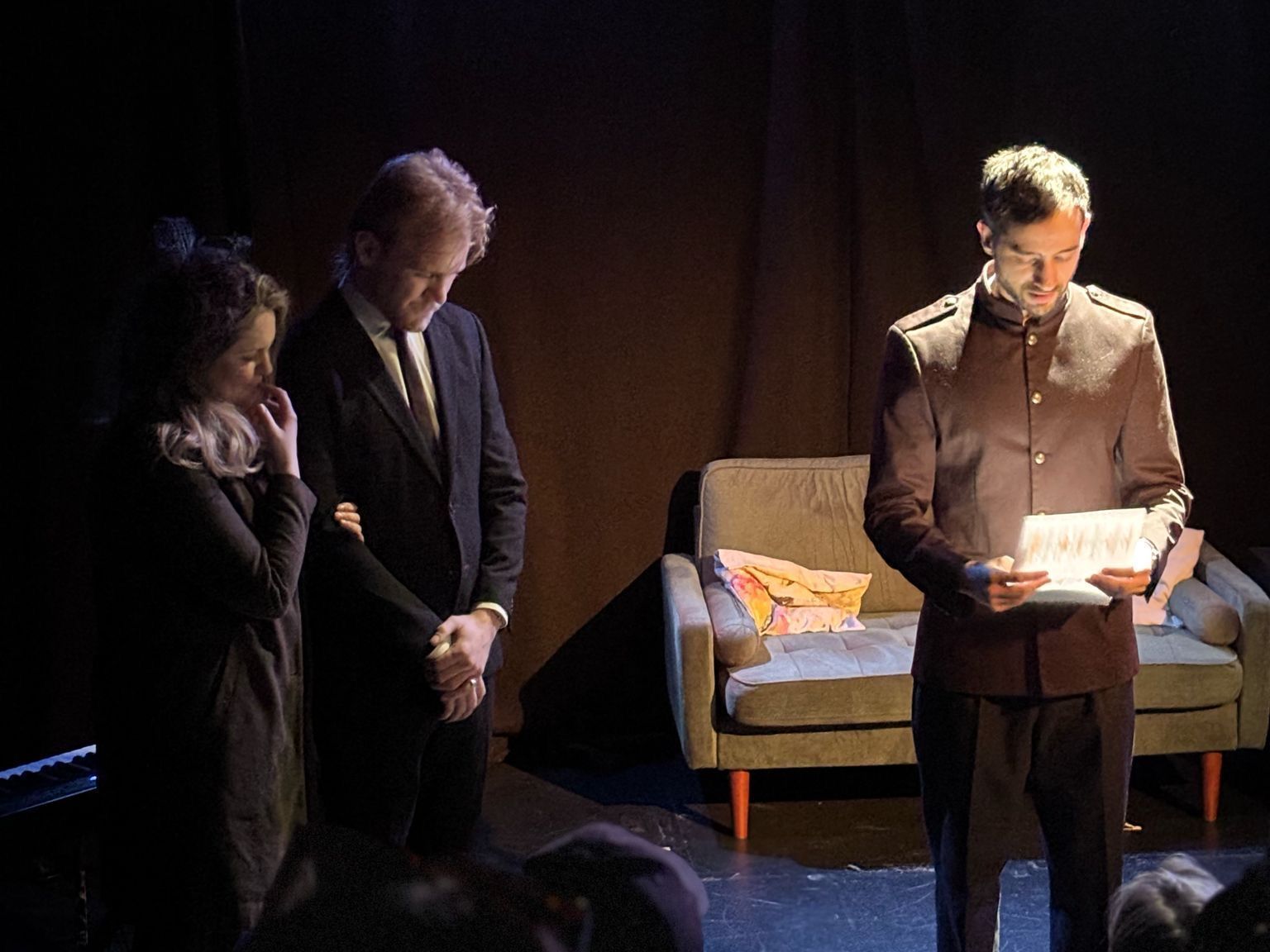by Alix Owen
•
2 April 2025
‘Nice premise and performed fantastically, but lacking in big, original belly laughs.’ ★★★ Rising star Rosie Day's second play after her acclaimed debut, Instructions for A Teenage Armageddon, is a deep dive into the puzzles and webs of family dynamics. Billed as Saltburn meets Schitt's Creek, (This Is Not A) Happy Room finds the variously estranged members of the Henderson family reuniting in a Blackpool hotel for their bachelor father's umpteenth wedding. The catch? He dies on the way and the family have to come together to turn it into a funeral instead. It's a great and original setup. We're introduced to a series of flawed but likeable characters: arriving first, the mostly-thirty-something siblings: highly strung new mum Laura (Andrea Valls) and her hapless husband Charles (Tom Kanji), super successful but strangely hopeless actor Elle (Rosie Day), and their wildly neurotic brother Simon (Jonny Weldon), all of whom have nothing in common but the shared childhood from which they've all tried to run away. They're joined by their effortlessly glamorous mother, Esther (a brilliant Amanda Abbington) and their senile great Aunt Agatha (Alison Liney), and later by a passively judgemental American psychologist called Hayley (Jazz Jenkins), a second cousin of someone or other, whose presence I never fully understood. They are a good set of characters placed into a simple and inventive situation. The thing is, that setup is a lot funnier than the execution. Something about it never quite gets off the ground. It remains a not hugely interesting examination of family dynamics through the lens of an extremely privileged one. That's not to say it isn't worthy of examination, but whereas Saltburn is satirising class, (This Is Not A) Happy Room veers a little too closely to smugness. Jokes aren't really ironic, but literal, jibes about Blackpool, bowling, Steps, The Daily Mail, cheap vodka from the BP garage, have the potential to illicit the kind of self-satisfied reaction that not all audiences will relate to (though, yes, granted, dysfunctional families are pretty universal) or feel the kind of sympathy they're supposed to be feeling for the human rights lawyer, multi-million dollar grossing actor, and hypochondriac layabout. Now, I'm not saying that this IS how it comes across, just that it's close. But equally, there's potential for greatness on the other side: the family's casual racism, entitlement, and snobbery starts to touch on something interesting, though it never quite gets there or becomes self-aware enough to unpack its own rich observations, probably because it keeps the characters far too likeable to explore that potential. In this way, there's a bit of an identity crisis going on. Is it a standard, good-hearted comedy more like Four Weddings and a Funeral? Or is it a searing indictment of class like Saltburn? And though the writing is playful, it doesn’t deliver the deadpan genius of Schitt’s Creek. However, like that aforementioned sitcom, it is in those characters that (This Is Not A) Happy Room really excels. These are some sensational performances. Particularly brilliant is Amanda Abbington, who, in a cut-glass class of her own, conjures up a fantastically campy matriarch with moments of surprising depth and a lifetime behind her eyes. Then there’s Alison Liney, in her professional debut, as the dizzy great aunt, and whose long background in amateur theatre not only shows the value of those groups but has given us her impeccable comic timing and absolute star quality, and she should be snapped up immediately. Also worthy of mention is Jonny Weldon as Simon, whose every tic and beat is truly hilarious (not too much, not too little), beyond even what the source material has given him. The entire cast are on form. Scenes do start to become a little repetitive throughout the 90-minute runtime and the already quite slow momentum of the plot struggles to sustain these sluggish, though well-structured, scenes that tend to tread the same ground with different characters. At the end of the day, the play has a nice premise and is performed fantastically, but it's lacking in big, original belly laughs, leaning mostly on reliable but uninspiring cliché. There is a great potential for farce, but it doesn't quite deliver that energy. There's great potential for social commentary, but it keeps its scope too small. So overall, it’s not doing anything new with the material: it’s just sort of circling it, but it’s certainly not bad either. If this is not a happy room, it is at least an entertaining one. Photography: Mark Senior (This Is Not A) Happy Room by Rosie Day Directed by Hannah Price King’s Head Theatre, 1 – 27 April 2025 Box Office: https://kingsheadtheatre.com/whats-on/14/by-rosie-day/this-is-not-a-happy-room Reviewed by Alix Owen
